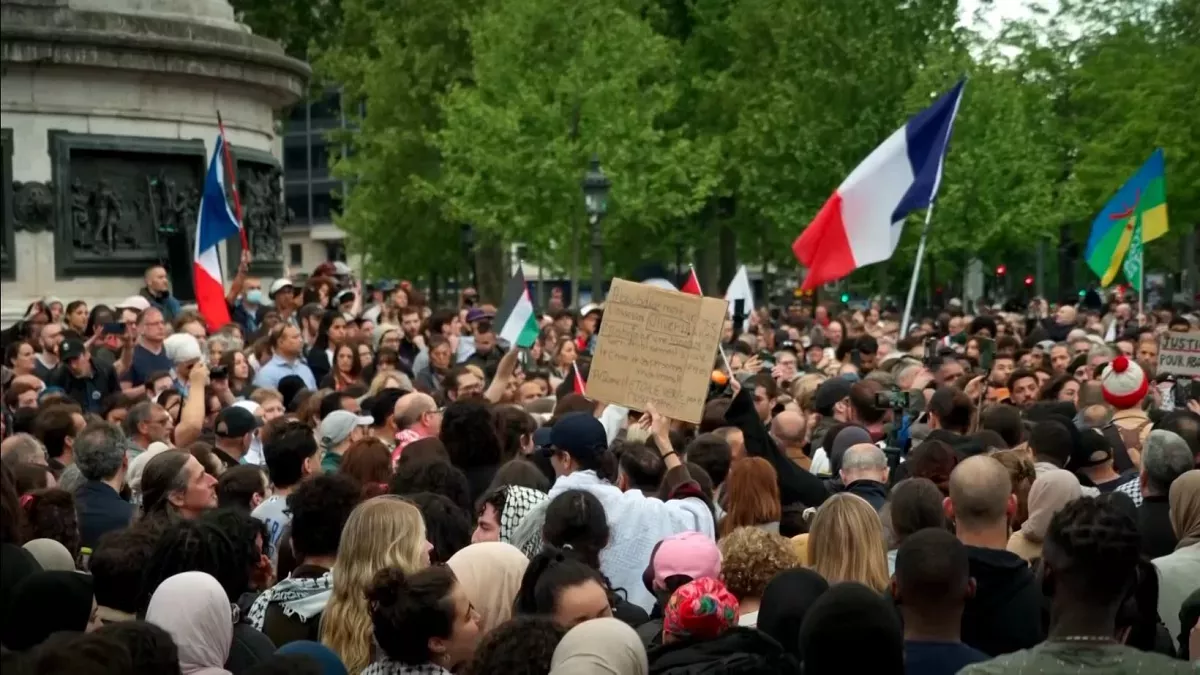Murder of Muslim worshiper in southern France ignites debate on Islamophobia and justice French media raises alarm over state inaction
France's RFI has reported on rising anger following the fatal stabbing of a Muslim worshiper at a mosque in southern France. The attack has triggered accusations of government inaction, with Muslim leaders and the victim’s family condemning what they see as a delayed and inadequate response. The article highlights growing concern over Islamophobic violence and the state's perceived failure to act swiftly. Caliber.Az brings this report to readers’ attention amid renewed debate over France’s approach to anti-Muslim hate crimes.
The brutal stabbing of 22-year-old Malian national Aboubakar Cissé, who was killed while praying alone at a mosque in La Grand-Combe, southern France, has ignited a national outcry over the government's handling of anti-Muslim violence.
Cissé, a carpenter and volunteer at the mosque, was attacked last Friday morning by 21-year-old French national Olivier A., who reportedly filmed the killing and posted the video online, mocking Islam and declaring, “I did it.” After fleeing to Italy, the suspect turned himself in to police near Florence on Sunday night.
Prosecutor Abdelkrim Grini confirmed that investigators are treating “anti-Muslim or Islamophobic motives” as the main line of inquiry, though other factors—such as a “fascination with death” and a desire to be “seen as a serial killer”—are also being considered. The suspect’s lawyer claimed his client denies any hatred of Islam, insisting he targeted “the first person he saw” and had “nothing against Islam or mosques.”

The murder, however, has been met with mounting frustration from Muslim leaders and Cissé’s family, who accuse the French government of responding too slowly and treating the case with insufficient gravity.
Cissé’s family, received at the National Assembly on April 29, demanded justice. “He didn’t come here to get killed,” said his uncle Djibril Cissé. “He was a good man, sociable, and a model for us all.”
A minute of silence was held in the Assembly after initial resistance from its president, Yaël Braun-Pivet, who reversed her decision following political pressure. “The Republic is one and indivisible,” said Green party leader Marine Tondelier. “People killed for their faith—Muslim, Catholic or others—deserve the same respect.”
Critics pointed to delays and inconsistencies in the government’s response. President Emmanuel Macron waited two days to comment, posting Sunday on social media: “Racism and hatred based on religion will never have a place in France. Freedom of worship is inviolable.” Interior Minister Bruno Retailleau—who had quickly visited the site of a student stabbing in Nantes just a day earlier—waited until Sunday to visit the region, meeting only with local officials and not the victim’s family.
Yoro Cissé, the victim’s cousin, told AFP, “No one from the government has contacted us. We want to feel safe. We love France. We want to feel like everyone else.”
Initial media reports falsely described the incident as a dispute between Muslim worshipers—something the family called “concerning,” alongside what they called a “tardy” political response.
Aminata Konaté-Boune, speaking on behalf of Cissé’s Soninke ethnic group, called it an “Islamophobic crime” and an “act of terrorism.” She warned, “Tomorrow, what will happen? Will they come knocking on our doors to kill us?”
Mohammed Moussaoui, head of the French Muslim Council, questioned why an anti-terrorism inquiry had not been launched and said “anti-Muslim hatred is not taken as seriously as other hate.”
Over 1,000 people joined a silent march for Cissé on April 27 in La Grand-Combe, while several hundred more demonstrated against Islamophobia in Paris.
By Tamilla Hasanova








